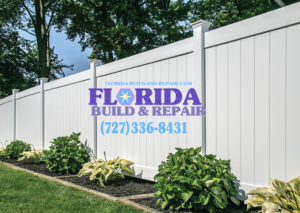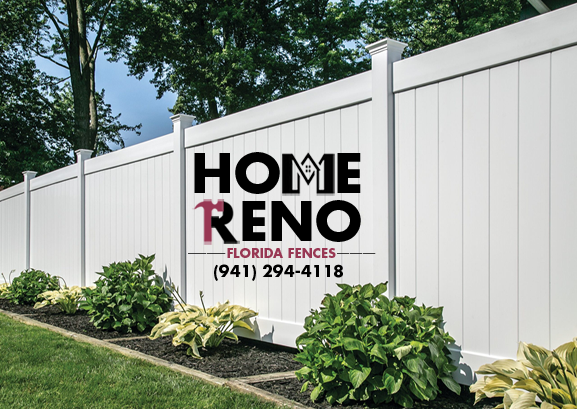Best Vinyl Privacy Fence Contractor in Holiday
- Holiday, Privacy Fence Costs Holiday, Privacy Fence Installation Holiday, Vinyl Privacy Fence Contractor Holiday, Wood Privacy Fence Service Holiday
- Comprehensive Methods to Identify and Hire an Exceptional Vinyl Privacy Fence Contractor in Holiday
- Questions to ask your Vinyl Privacy Fence Contractor in Holiday
- Wood Privacy Fence Installation Service Holiday
- Do You Need a Permit to Install a Privacy Fence?
Comprehensive Methods to Identify and Hire an Exceptional Vinyl Privacy Fence Contractor in Holiday
Enhancing property privacy and aesthetic appeal through vinyl fencing requires meticulous contractor selection. This report synthesizes industry insights, consumer experiences, and professional guidelines to outline a systematic approach for identifying skilled vinyl fence contractors. By prioritizing credentials, material quality, installation expertise, and post-installation support, homeowners can secure durable, compliant, and visually appealing results.
Section 1: Foundational Research and Referral Strategies
Leveraging Community Insights and Digital Platforms
Initiate the search by consulting online review platforms like Home Reno Florida, which aggregate verified customer feedback on contractor reliability and work quality. Cross-referencing these with localized forums, such as Reddit’s r/FenceBuilding, provides firsthand accounts of brand performance (e.g., Illusions, Bufftech) and contractor reliability. Neighborhood referrals remain invaluable, as residents often share experiences with contractors familiar with regional weather challenges and soil conditions.
Portfolio evaluation is critical: Reputable contractors showcase galleries of completed projects, highlighting their versatility in styles like lattice-top or solid privacy designs. Physical inspections of nearby installations, particularly those displaying company badges, offer tangible evidence of craftsmanship.
Section 2: Credential Verification and Regulatory Compliance
Licensing, Insurance, and Certifications
Holiday Contractors must hold state-required licenses and general liability insurance ($1 million minimum) to safeguard against property damage or worker injuries. Confirm policy validity directly with insurers and verify licensure through state databases. Membership in the American Fence Association (AFA) signals adherence to industry standards, while some certifications ensure background-checked professionals with ≥3.0 ratings.
Permitting and Legal Obligations
Competent contractors in Holiday manage permit acquisition, adhering to local height restrictions (e.g., 6 ft for backyards) and zoning laws. They also coordinate utility line checks via 811 services to prevent accidental strikes during post installation. Homeowners associations (HOAs) may impose additional design guidelines, necessitating contractor familiarity with these rules.
Section 3: Material and Installation Expertise
Evaluating Vinyl Quality and Brand Reputation
Wall thickness (≥0.15 inches), UV inhibitors, and titanium dioxide additives determine longevity. While brands like Bufftech and Homeland are praised for durability, avoid prioritizing thickness alone; reinforced rails and interlocking pickets enhance wind resistance. Contractors should clarify whether they use virgin vinyl (not recycled) and provide warranties against discoloration or warping.
Installation Best Practices
Posts must be set 24–36 inches deep with concrete extending below frost lines to prevent heaving. Proper spacing (panel width minus 3 inches) allows for thermal expansion, reducing buckling risks. Professionals employ laser levels and string lines to ensure alignment, while mitred joints and steel-reinforced rails prevent sagging.
Section 4: Financial and Contractual Considerations
Transparent Quoting and Payment Structures
Obtain 3–5 itemized quotes comparing material costs (e.g., $24.99/ft for Bufftech panels), labor, and permit fees. Avoid contractors demanding full upfront payment; 50% deposits with balances due upon completion are standard. Contracts should specify timelines, cleanup duties, and warranties (e.g., 7-year coverage on gates).
Avoiding Substandard Bids
Low bids often indicate recycled materials or inadequate labor. For example, 8-foot vinyl panels lacking steel supports may sag, necessitating costly replacements. Scrutinize inclusions: Permits, waste disposal, and grading for sloped yards should be detailed.
Section 5: Post-Installation Accountability
Warranty and Maintenance Support
Manufacturer warranties (e.g., Bufftech’s lifetime coverage) protect against defects, while installer warranties address workmanship. Contractors should offer maintenance guidance, such as gentle cleaning with water to preserve vinyl’s finish. Post-installation inspections ensure posts are plumb, gates function smoothly, and debris is removed.
Handling Disputes and Follow-Ups
Documentation of pre-existing property conditions mitigates dispute risks. Contractors committed to long-term relationships provide follow-up services, like seasonal inspections or minor adjustments.
Conclusion
Securing a top-tier vinyl privacy fence contractor in Holiday demands a multifaceted approach: vetting credentials, scrutinizing material choices, and validating installation rigor. By prioritizing contractors who blend technical proficiency with transparent communication—such as those highlighted in various reviews or community endorsements—homeowners achieve durable, code-compliant installations that elevate property value. Future efforts should focus on standardizing industry certifications and expanding consumer education on material innovations.
Questions to ask your Vinyl Privacy Fence Contractor in Holiday
When hiring a vinyl privacy fence contractor, it’s crucial to ask the right questions to ensure quality work, compliance with regulations, and satisfaction with the final product. Here are some key questions to consider:
1. Licensing and Insurance
- Are you licensed to operate in our state?
- What type of liability insurance do you carry?
This ensures compliance with local regulations and protects against potential accidents or property damage.
2. Experience and Expertise
- How many years of experience do you have with vinyl fence installations?
- Can you provide references or examples of previous vinyl fence projects?
This helps gauge their familiarity with vinyl fencing and ability to handle various installation scenarios.
3. Material Quality and Installation Process
- What type of vinyl material do you use, and what are its specifications (e.g., thickness, UV resistance)?
- How do you ensure proper drainage and post stability during installation?
Understanding material quality and installation techniques is vital for durability and longevity.
4. Project Details and Timeline
- What is the estimated timeline for the project, and what factors could affect this timeline?
- Who will be responsible for obtaining necessary permits?
Clarifying these points helps manage expectations and avoid delays.
5. Costs and Payment Terms
- What is the total cost for the project, including materials and labor?
- What payment terms do you offer (e.g., deposit, final payment upon completion)?
Transparent pricing and payment structures prevent misunderstandings.
6. Warranties and Maintenance
- Do you offer a warranty on your work, and what does it cover?
- What maintenance advice do you provide to ensure the longevity of the fence?
A warranty provides peace of mind, while maintenance guidance helps preserve the fence’s condition.
7. Subcontracting and Labor Practices
- Do you subcontract any part of the work, or do you use in-house labor?
- How do you ensure the quality of subcontracted work?
Understanding labor practices can impact project quality and accountability.
8. Handling Obstacles and Property Lines
- How do you handle obstacles like trees or uneven terrain during installation?
- How do you ensure that the fence is installed within property boundaries?
This ensures that the fence is correctly positioned and avoids potential disputes.
9. Dispute Resolution and Customer Support
- What process do you have in place for addressing customer concerns or disputes?
- Do you offer post-installation support or follow-up services?
Knowing how issues are resolved can be reassuring for homeowners.

Holiday Vinyl Privacy Fence Costs vs. Other Fencing Options
Vinyl Privacy Fence Costs vs. Other Fencing Options When comparing vinyl privacy fences in Holiday to other materials like wood, composite, and aluminum, it’s essential

Top 10 Benefits of Installing a Vinyl Privacy Fence in Holiday
Top 10 Benefits of Installing a Vinyl Privacy Fence in Holiday

Why a Vinyl Privacy Fence in Holiday is the Best Choice for Your Yard
A vinyl privacy fence in Holiday is often considered the best choice for many homeowners due to its numerous benefits. Here are some key reasons

How to Choose the Best Privacy Fence for Your Home in Holiday, Florida
Choosing the best privacy fence in Holiday involves several key considerations, including the purpose of the fence, budget, and personal style preferences. Here’s a step-by-step

Holiday Vinyl Privacy Fence Installation Tips
To ensure your vinyl privacy fence in Holiday is straight during installation, follow these key steps: By following these steps and consistently referencing your string

How Much Does a Privacy Fence Cost in Holiday
Installing a privacy fence in Holiday typically costs between $15 and $85 per linear foot, with total project expenses ranging from $1,800 to $12,750 depending

Wood Privacy Fence Costs in Holiday
The cost of a DIY wood privacy fence in Holiday can be broken down into materials and tools. Here’s a detailed breakdown for a typical

Best Vinyl Privacy Fence Contractor in Holiday
Comprehensive Methods to Identify and Hire an Exceptional Vinyl Privacy Fence Contractor in Holiday Enhancing property privacy and aesthetic appeal through vinyl fencing requires meticulous

Wood Privacy Fence Installation Service Holiday
Wood privacy fence installation in Holiday is a popular choice for homeowners looking to enhance their property’s security, privacy, and aesthetic appeal. Here are some

Vinyl Privacy Fence Costs in Holiday
Vinyl privacy fence costs in Holiday typically range from $40 to $85 per linear foot installed, depending on factors such as height, style, and location.

Combining Privacy Fences in Holiday with Landscaping for a Natural Look
Creating a natural-looking privacy fence that blends seamlessly with your landscaping can transform your outdoor space into a secluded retreat. Here are some effective strategies


